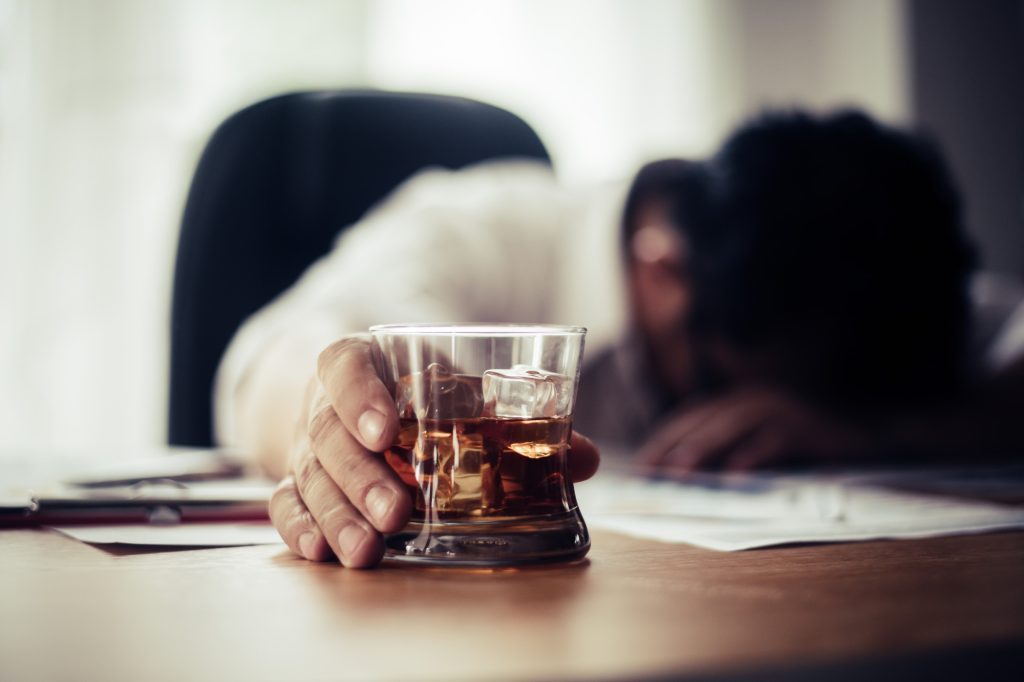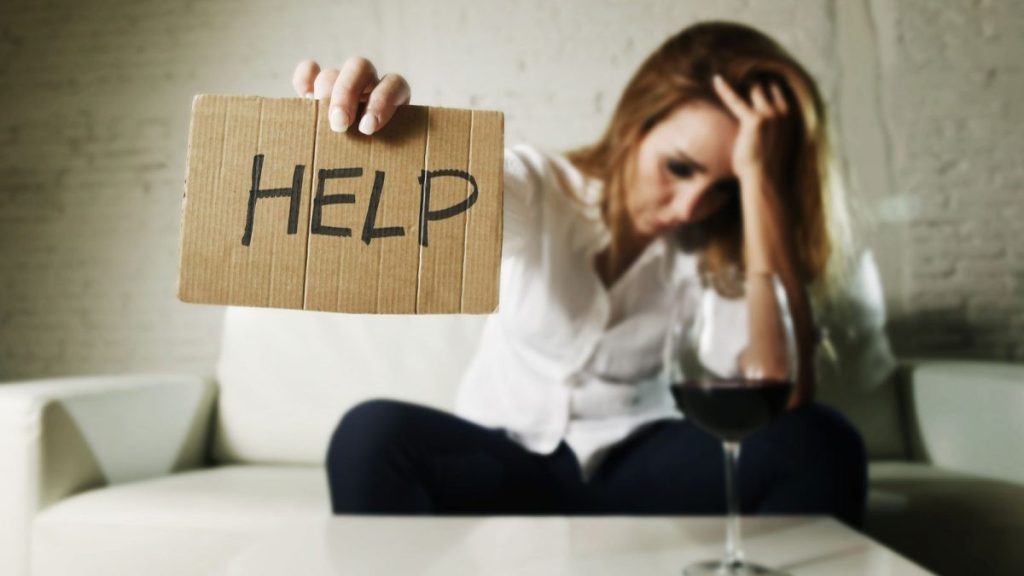0207 205 2845 0207 205 2845


Alcohol addiction is a difficult thing to live with. When someone is struggling with alcoholism, this may seriously impact their mental and physical health and relationships.
When does drinking pass the grey line and become alcohol abuse or alcoholism? This article will explore alcoholism and how to spot the signs of alcohol addiction.
Drinking alcohol becomes an addiction when a person can no longer control their consumption. This may continue to occur even when there are legal, emotional and financial repercussions from their activities.
Alcohol dependence can cause harm to your body and your mental state. These are some possible short-term consequences of alcoholism:
There are also potential long-term effects of alcoholism:
These negative impacts highlight why the prevention of addiction is essential.
Yes, addiction is a treatable disease. Like other chronic diseases, addiction can be managed. Treatment can enable you to counteract addiction’s disruptive effects on your thinking and your behaviour to regain control of your life. This is what we mean by recovery.

No, addiction is a chronic disease, so relapse is not only possible but probable. Relapse rates for addiction are similar to those for illnesses such as diabetes, hypertension and asthma. Treating addiction means you have to change thoughts and behaviours deeply embedded in you, and this is rarely easy or quick. Relapses indicate that your treatment needs to be reinstated or adjusted and that you may have further to go in changing yourself.
For most clients, medical intervention combined with behavioural therapy and total abstinence from alcohol is the best way of ensuring success. Your treatment must be tailored to take account of your own pattern of drinking or drug use, as well as any medical, psychiatric or social problems you may be experiencing.
Treating Withdrawal. When you stop using alcohol or drugs, you will usually experience withdrawal symptoms, including restlessness, sleeplessness, depression, anxiety and mood disorders. Certain medications can help reduce these symptoms and make coping easier for you.
Certain medications help your body adapt to the absence of the substance on which it has become dependent. They can alleviate cravings, calm your body, and allow you to focus on your treatment programme.
Preventing Relapse. The most common triggers for relapse are stress, exposure to alcohol or drugs, and cues linked to your own experiences of drinking and drug use (people, places, things, moods). Certain medications are being developed to lessen or interrupt the effects of these triggers and help you maintain your recovery.
Behavioural therapies like CBT help you change negative attitudes and destructive behaviour patterns. They also help you develop new life skills to cope with stressful situations and the cues which trigger cravings. Behavioural therapies are well known to enhance the effectiveness of medications and help addicts maintain their recovery.
Because addiction can affect so many aspects of your life, the best treatment programmes blend together a variety of rehab services. Stopping drinking or using drugs is only one part of the recovery process. The compulsion to get hold of alcohol or drugs and to drink or use has probably dominated all of your thinking for months or even years. No doubt, addiction has disrupted how you function at home and work and made you more likely to suffer from other illnesses. There is no one way to free you from all these entanglements.
Are you afraid that you or someone you know is possibly becoming addicted to alcohol? These are some signs of alcohol addiction you can look out for.
One of the most telltale signs of alcohol addiction is that you are beginning to realize you drink too much. Alcohol dependence can involve consuming alcohol several times a week or spending more money on alcoholic drinks.
Once you’ve acknowledged this problem, you may feel like you need to reduce your consumption, only to find out that you can’t. This is how you know that you have started growing dependent on alcohol. If you cannot cut down on drinking without feeling like you can no longer go through daily activities, you may be facing alcohol addiction.
When alcohol addiction begins to take more control over a person’s life, they may find themselves getting hungover more often. The lethargic side effects of drinking and the negative mental and physical impacts will make it difficult for anyone to pay close attention to self-care and hygiene.
This can result in skipping meals, worsening depression, and showering less. If you start seeing these symptoms in your own life or someone else’s, it may be a sign that their alcohol consumption is causing them to be less attentive to their own needs. Things can continue to worsen from here and may result in long-term impacts or suicidal tendencies.
Sometimes, when someone starts to have an alcohol problem, they will do their best to hide their alcoholic consumption from the people around them. This may make it difficult for you to determine whether they are actually drinking too much, but a sign to look out for is if they are spending more time feeling sick or exhibiting hangover symptoms.
Common symptoms to look for will be fatigue, nausea, stomach aches, and irritability. Unlike the consumption of alcohol, these side effects will be harder to disguise.
Another common symptom of alcohol abuse is the constant desire to have a drink. It doesn’t matter if they’ve been drinking the night before or earlier in the day. The desire starts to become overwhelming, and they will be looking for a way to drink almost around the clock.
If you are worried that you may have alcohol dependence, you may also notice that you are constantly thinking about getting a drink or wondering when you will be able to again.
One of the most important signs that should cause alarm is when someone’s behaviour begins to change because of their drinking. This may manifest in increased irritability and overall conflict with friends, family and loved ones. When you start noticing someone becoming more distant from most of their loved ones, it may indicate that their alcohol addiction is going beyond their control.
When someone struggles with alcoholism, they may continue to look for alcohol even as it impacts their relationships.
You may also notice this if you are beginning to drink too much. When you find out that your relationships have problems related to your alcohol consumption, that’s when you know for sure that it’s time to start finding a way out of the addiction.
While drinking causes hangover symptoms that may be uncomfortable for everyone, alcohol dependence means that withdrawing from drinking causes more physical discomfort.
This can occur when someone starts trying to limit their drinking, and it can last for a few days. Some withdrawal symptoms include:
Some severe cases may include hallucinations or delusions.
Maybe someone who used to work hard and excel at their jobs stops performing well or starts coming to work irregularly. Otherwise, a person may not spend time doing their chores, studying, or going through their normal activities at the same level as before.
When someone begins to slack off or stop being on top of their responsibilities, it may indicate that they are experiencing alcohol dependence. As soon as drinking takes over your life, you start focusing only on when you can drink again, causing you to lose control over your daily responsibilities.
If you stop drinking and are experiencing withdrawal symptoms, this may make it difficult for you to be productive or focus on anything other than your current condition. Depressive or anxious thoughts arising from alcohol dependence can impact your motivation and your ambitions for the future. In these cases, you may choose to let go of your responsibilities because you no longer see them as important.
Maybe you’ve caught on to someone’s drinking habits, but they are still trying to find excuses for their need to consume more alcohol. For instance, they may say that it is an unnaturally stressful period of their lives, and they need more alcohol to find peace.
Otherwise, they may say that they are only drinking more because their alcohol tolerance has increased and that they are not feeling the negative impacts or having it all under control. Despite what they may say, it’s important to note whether their drinking has reached an excessive level. Whatever the reason, it will soon become unhealthy and an uncontrollable habit.
People usually have hobbies or activities that they are very passionate about. When they face an alcohol addiction, though, it may be difficult to find the same joy in these activities as before.
As a result, a person may stop doing something they used to love. If you notice that a loved one is beginning to give up on their hobbies or recognize this pattern with yourself, it is time to receive help.
It may also highlight a potential long-term consequence of alcohol dependence, which is depression and suicidal thoughts. The sooner you receive or conduct a well-informed intervention, the higher the chances they may not face long-term impacts.

The best way to deal with alcohol addiction is to decide that you want to get better and enlist the people around you. You can then make an effort to remove all alcoholic drinks from your house, office, and places you frequent.
Ensure your friends and family know your goals and will not drink around you or persuade you to return to your old ways. You may also join an alcohol counselling or alcohol rehab program.
Alcohol addiction is harmful and may result in long-term physical and mental anguish. It is also something that may not be immediately obvious, both to yourself and to your loved ones.
That being said, there are some signs of alcohol addiction that you can look out for. This includes drinking in secret, not controlling your consumption, and withdrawing from your relationships.
Contact us today for free advice regarding alcohol dependence.